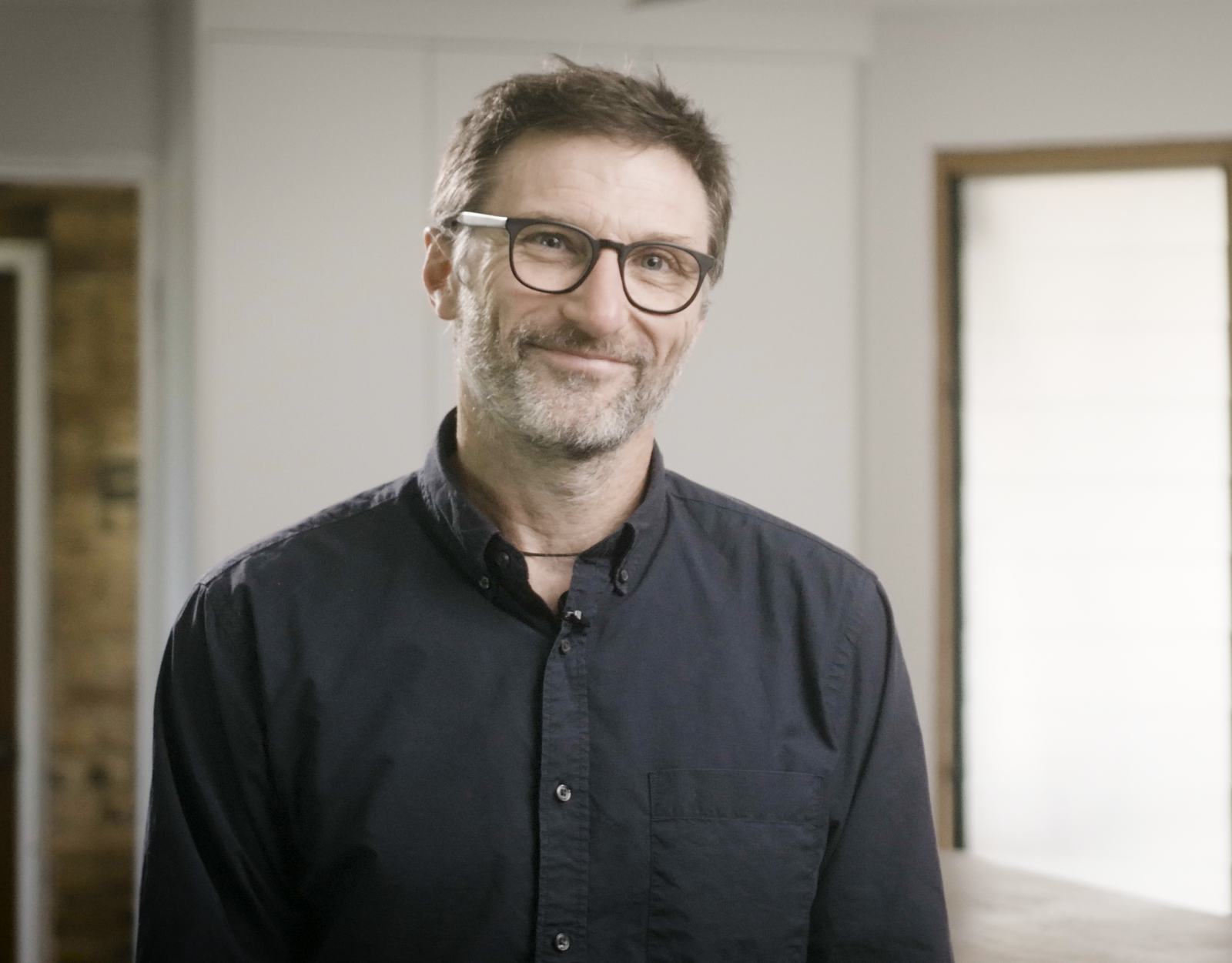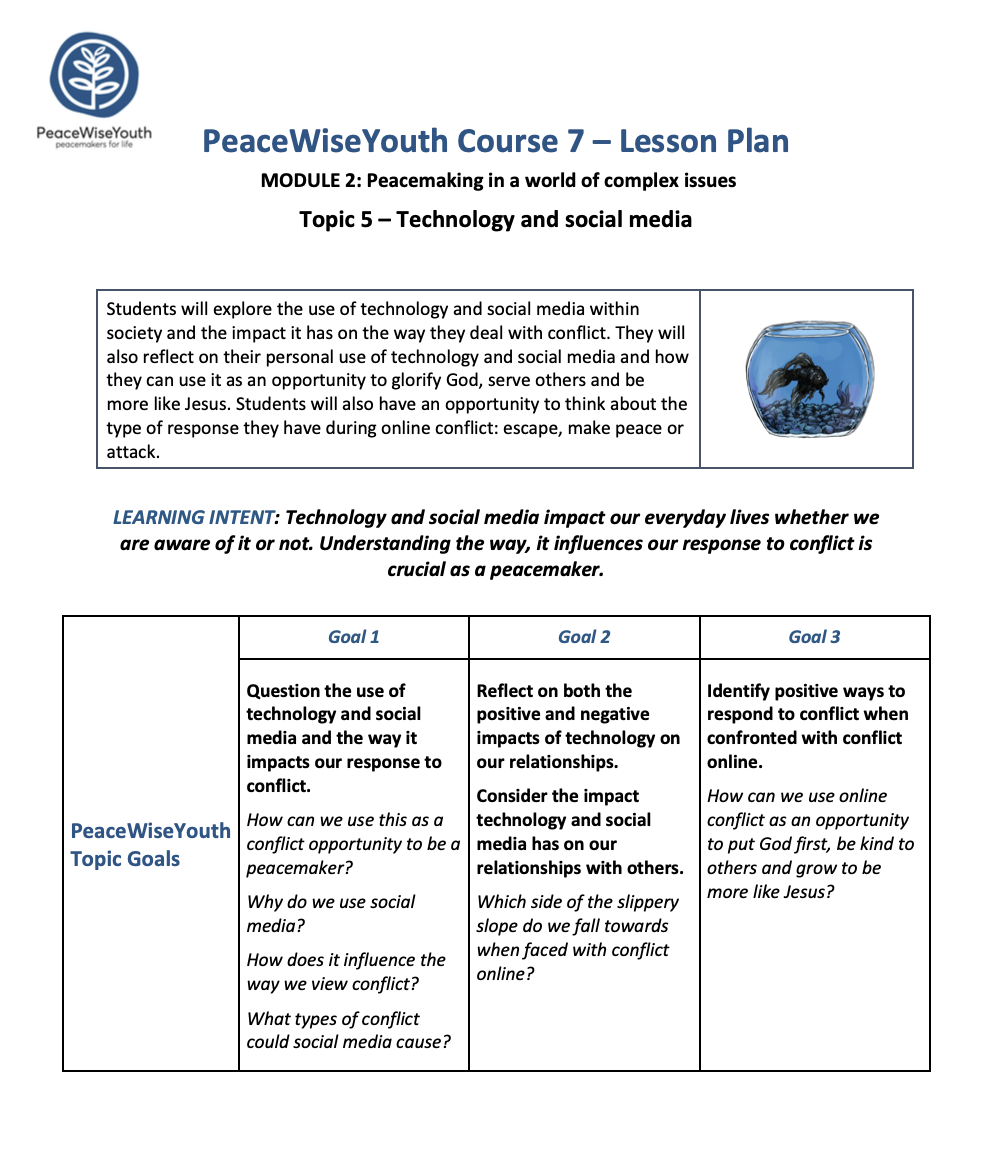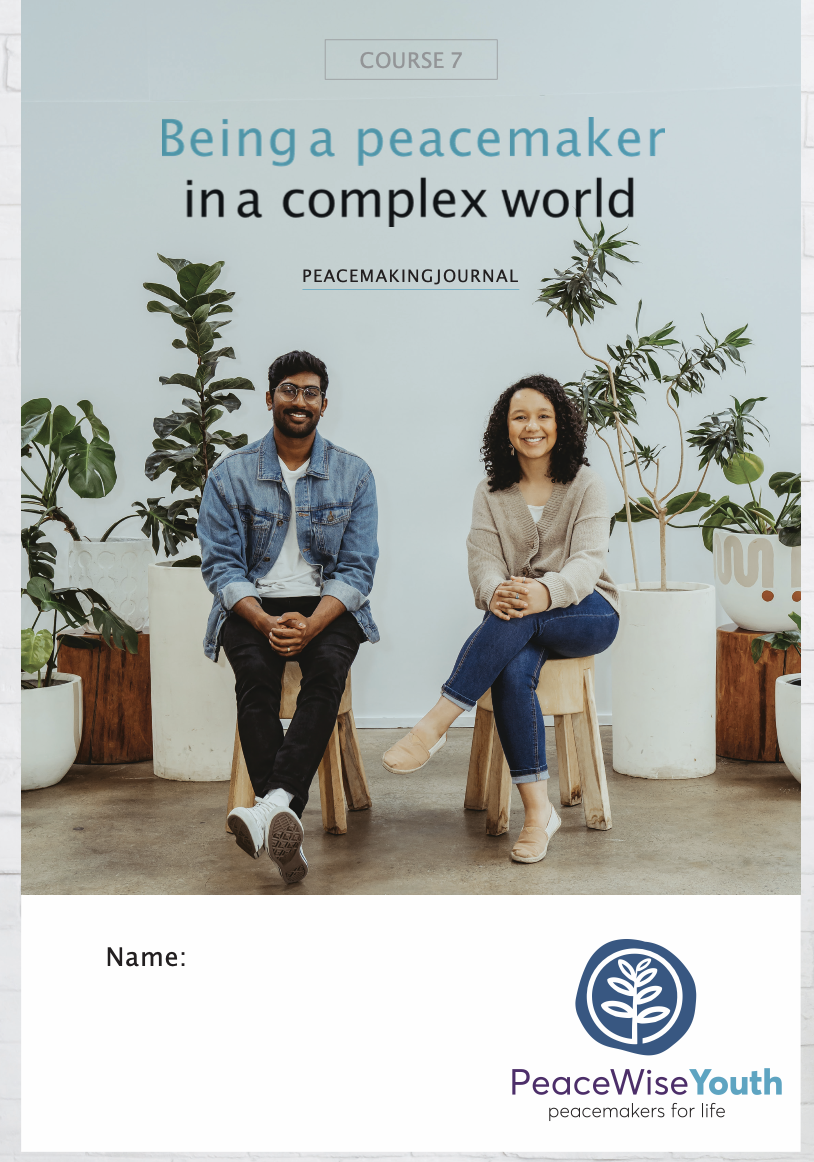being a peacemaker in a complex world
ages 16-25 | Course 7
Being a peacemaker in complex world is designed to teach biblical peacemaking alongside the hot topics young people are facing. By understanding their personal worldview, and that of others, students will be equipped to be peacemakers in a complex world.
who’s this for and what’s it about?
Years 11 or 12 and young adults
ages 16-25 | Course 7
Leah, Jairus and Chris teach peacemaking and worldview thinking to help students engage with conflict and “hot topics”.

Video presenters, animations, interactive activities, reflective journal.
Theme: Connecting how our world shapes us, peacemaking principles and the hot issues and conflicts facing older teens and young adults
students will learn…
foundational peacemaking principles
Students will learn what conflict is, where it comes from, and a basic framework they can use in any conflict situation.
how to think critically with a Christian worldview
Students will come to understand how we are shaped and formed by our culture, our stories and our experiences. They will consider what it means to think through the lens of a Christian perspective on life.
to connect these concepts to complex life issues
Students will then apply these peacemaking and worldview concepts to a range of challenging issues which they encounter in their lives.
course content
This course takes a different approach to any of the other PeaceWiseKids or PeaceWiseYouth courses, by introducing two unique additional elements to the core biblical peacemaking tools and principles: Christian worldview thinking and direct engagement with “hot topics” of the day.
The Christian worldview content is provided by noted author and speaker Chris Parker, author of The Frog and the Fish.

launch webinar unpacking “Being a peacemaker in a complex world”
- welcome and introduction (start to 4:46)
- overall vision, course, context and content and how to teach it (4:47 to 14:09)
- sampler of the lesson on “discussing controversial topics” (14:10 to 21:48)
- Chris Parker on why teaching worldview to our young people matters (21:52 to 31:38)
- vision for where this course can go and further options for you to use it (31:39 to 45:35)
course structure
There are two modules:
Module One: Foundational peacemaking principles
- 4 topics
- grounds students in the concepts and tools they need to apply peacemaking principles in everyday life
Module Two: Peacemaking in a world of complex issues
- 8 topics, of which you need to do a minimum of 4 topics – though we encourage doing all 8
- allows students to engage in the hot topics they’re experiencing and prepares them for living in a complex world as a peacemaker
- integrates both biblical peacemaking concepts and Christian worldview thinking as students engage with the different issues for each topic
topics covered
| Module 1 Foundational peacemaking principles | Module 2 Peacemaking in a world of complex issues |
| Topic 5 Technology and social media | |
| Topic 6 Identity | |
| Topic 1 What is conflict and how do I respond to it? | Topic 7 Mental health |
| Topic 2 How do I address my part in a conflict? | Topic 8 Grace |
| Topic 3 How can I best address what the other person did? | Topic 9 Justice and judgments |
| Topic 4 How can we restore our relationship? | Topic 10 Addictions |
| Topic 11 Discussing controversial topics | |
| Topic 12 Forgiveness |
where do I teach it?
In schools: typically as part of Christian Growth, Christian Studies or as an elective in Year 11 or Year 12.
In colleges: the course is extremely well suited for gap year input or Christian foundation style subjects, especially given its integrative treatment of biblical peacemaking, Christian worldview and “hot topics” within the one course.
In churches: suitable for small group study over 8-12 weeks – both for young adults as well as for youth leaders wanting to prepare to use PeaceWiseKids or earlier PeaceWiseYouth courses with younger members of the church.

course details at a glance
4 core plus 4-8 electives
number of lessons
- Four core lessons make up Module 1
- Eight electives topics make up Module 2.
For Module 2, the 8 different topics can be done in any order, but you need to do a minimum of 4 of the Module 2 topics to adequately teach the course.
Approximately 50 minutes
lesson length
An example lesson breakup would be…
- 20 minutes of video content (including discussion questions)
- 15-20 minutes of teacher directed activities
- 10-15 minutes of personal reflection using the journal
Video + class interaction + reflection
course format
- Online stimulus videos including discussion questions
- Teacher directed lessons
- Personal reflective journal for each student
12 months
how long can I use it?
Purchase of this course provides the user with a 12 month licence to use all course content.
For schools and home schools, the 12 months runs on the school year of the country in question (e.g. Jan to Dec in Australia and New Zealand, Sep to Aug for the US)
free trial content – take a closer look at the course
Check out a sampler video from one of the topics below. You can also have a closer look at a sample lesson plan and the student journal as well.


the benefits of a whole of school approach
For schools, there is the unique opportunity to have everyone in the school using the same language, concepts and relational principles.
This is because:
- there are courses available from Kindergarten through to the end of school
- all courses are mapped to Australian Curriculum outcomes,
- all courses have the same core underlying framework and topics – but adjusted to different age levels and with different themes and ways of presenting the content.
This means those teaching the principles can share the same core concepts and tools across multiple age groups, and there is consistency of learning at all age levels. There is the development of a “common language” within the School
For example, a school could run the program in both primary and high school, or across multiple year groups in either, and the students and staff will all be “on the same page” with what is being learned.
Note that within schools, there is also the option for PeaceWise to deliver Everyday Peacemaking for Schools training for all staff, as well as parent seminars.
This opens up the prospect of building a healthy relational “culture” with the whole community and facilitates a “whole of school” approach.

get started
Hit one of the buttons below to get started – and please feel free to reach out to us if you need help.
For larger groups like schools, we highly recommend you contact us before you buy so we answer any questions about the course and help you make sure you pick the right resources for your students. 😉
For schools, we also have package pricing for whole of school purchases.